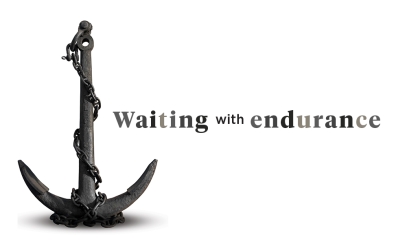Be a "Faithful Citizen" this November
How to be a faith-filled citizen in this or any election can be difficult. The United States Conference of Catholic Bishops issued a document called Faithful Citizenship two years ago to help us. This complements the Compendium of the Social Doctrine of the Church.
That text reminds us that the most important principle governing any decision we should make is our respect for the sacred dignity of all human life, and the imperative to avoid attacking that life, especially if it is innocent life. This teaching is not just an opinion, but is the truth of who we are as human beings, and it is noteworthy that our Declaration of Independence sees it as the foundation of all other rights – “life, liberty and the pursuit of happiness.” Thus, we cannot shirk our responsibilities both as faithful Christians and as citizens to speak and act in the public forum, and especially by voting, to protect and promote life.
This text also calls us to follow our moral convictions more than a party or an interest group. These convictions are not to be the result of feelings but of the voice of God speaking in our hearts – hearts attuned to what is right and what is wrong, hearts attuned to the truth that the end does not justify the means, and that we cannot do evil in order to do good.
Some three basic principles, in addition to the respect for human dignity, can assist us in having a well-formed conscience. These are promoting the common good, subsidiarity and solidarity.
The promotion of the common good stems from respect for the dignity and unity and equality of all people. It is when we promote, in common, what allows both individuals and the community to reach their fulfillment. Thus, we recognize that what we do as a society is both with and for others. We are not loners, and we are all in this together. In fact, the only reason we have a political system is to promote and defend the common good. But notice, it is always to serve the human fulfillment of the members of society. It is not just to have a political system for its own sake. And this human fulfillment is not just about material well-being. Rather, it is how society, and the political structures which serve society, help us to be fully human, especially in our spiritual nature, our God-given nature. There are many, especially the poor, who need more assistance in reaching their human fulfillment and we, as members of this society seeking the common good, must serve to help them.
Subsidiarity is not something we hear much about. Basically, this principle means that what can be done at a lower level of society should be allowed to be done there and even assisted by the political structures to do so. For example, the education of children belongs primarily to parents. When states or federal governments take on this role, rather than assisting parents to be responsible for their own role, this violates subsidiarity. Bigger is not always better. This same principle would apply to local communities, to organizations and to the states. It is often said that Catholic organizations, such as hospitals and charities, are much more efficient than the federal government in achieving the common good. Efficiency is not the only important factor, however. When human beings can actually be of help to other human beings, the closer they are to the need, and are allowed to respond to that need, respects subsidiarity.
This easily leads to the principle of solidarity. We are never alone. God did not make us to be alone. We are in this journey together, and we are and ought to be interdependent on one another. We can sometimes think this is limited to our own country. However, we are one with all other human beings on the face of this earth. This is not just a feeling of compassion which we have. It is rather a determination to seek the common good of all, as we say, from the womb to the tomb. Just as Jesus poured out his life for every human being, so our love and actual care can never be limited.
Clearly, these principles can sometimes be in conflict in the real world. Our duty, as faithful Christians and as faithful citizens, is to strive to bring them together and to heal the fractures of our society and our world.



